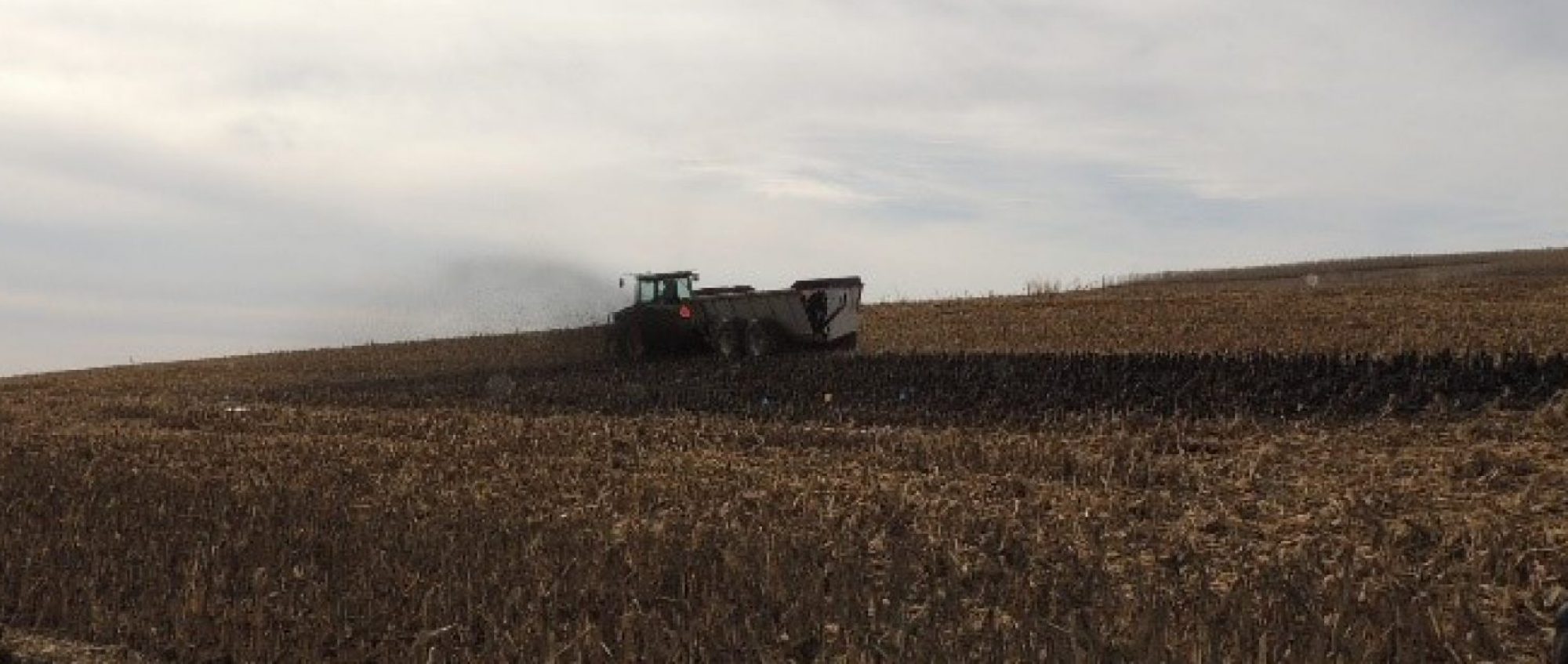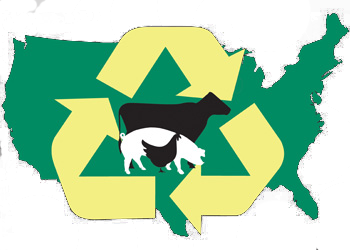Mission | Contact Us | Topic Teams | Products | Core Values | Funding | Membership
What Is the Livestock and Poultry Environmental Learning Center (LPELC)?
The LPELC is a network made up of professionals from across the U.S. (and Canada) with an interest and expertise in some aspect of animal agriculture and environmental stewardship. (A nice way of saying we talk about manure….a lot.) Public sector funding for people and projects devoted to the outreach and extension of research information has dwindled at an alarming rate. This learning network offers faculty and staff with opportunities to network, collaborate, mentor, and share. What used to be done by walking down the hall, now can be done in “virtual” settings. It is our way of trying to do more with less. The network was officially established in 2005 with a USDA National Facilitation grant focused on water quality. It has continued to the present through the support of other grants related to air quality, beginning farmers, and climate change among others.
A learning network like the LPELC strives to bring together all types of expertise; all the way from research and technical knowledge to application of science on the farm. Ideally, a learning network creates a feedback loop where on-farm application informs the research and science. Better science should lead to positive applications on the farm which continues to refine the science, and so on.
Our Mission
Individuals involved in public policy issues, animal production, and delivery of technical services for animal agriculture will have on-demand access to the nation’s best science-based resources that is responsive to priority and emerging environmental issues associated with animal agriculture.
Contact Us
Webcast series, web content: Leslie Johnson, University of Nebraska leslie.johnson@unl.edu
Leadership committee:
- Joe Harrison Washington State University, jhharrison@wsu.edu
- Leslie Johnson, University of Nebraska leslie.johnson@unl.edu
- Rick Stowell, University of Nebraska, rstowell2@unl.edu
- Erin Cortus, University of Minnesota ecortus@umn.edu
- Teng Lim, University of Missouri limt@missouri.edu
- Rick Koelsch, University of Nebraska rkoelsch1@unl.edu
- Erica Rogers, Michigan State University roger392@msu.edu
- Nichole Embertson, Whatcom Conservation District NEmbertson@whatcomcd.org
- Sandy Means, USDA-NRCS sandy.means@usda.gov
- Linda Schott, University of Idaho lschott@uidaho.edu
Topic Teams
Most of the website content is created by the focused groups within the learning network–the topic teams. These teams host “virtual work days” (usually on an annual basis) for the review and development of web content, identification of “hot” topics, professional development needs, or opportunities to collaborate for grant funding. The team leaders serve on a rotating basis and new members are welcomed at any time. (If you use the signup link, be sure to request membership in the LPELC during the process). The mutli-disciplinary nature of the LPELC is one of its greatest strengths.
- Air Quality- Kevin Janni kjanni@umn.edu
- Beginning Farmers- Thomas Bass tmbass@montana.edu
- Climate Change- Crystal Powers cpowers2@unl.edu and Rick Stowell, rstowell2@unl.edu
- Environmental Planning – Rhonda Miller, Utah State, rhonda.miller@usu.edu
- Feed Management- Joe Harrison, jhharrison@wsu.edu and Liz Whitefield e.whitefield@wsu.edu
- Manure Storage & Treatment – Becky Larson ralarson2@uwisc.edu
- Animal Mortalities – Josh Payne joshua.payne@okstate.edu
- Nutrient Management- Amy Schmidt, aschmidt@unl.edu
- Pathogens- John Brooks, USDA ARS John.brooks@ars.usda.gov
- Regulations-
- Small Farms- Mike Westendorf westendorf@aesop.rutgers.edu and Jactone Arogo Ogejo arogo@vt.edu
- Value of Manure (Economics)- open, new leader needed
Products
The major products of the learning center are:
- This website. The LPELC chose to affiliate with the eXtension Initiative platform for production of web content. This system is one of the largest outreach networks ever assembled and allows us to access expertise on beef, dairy, poultry, and other topics to supplement that already on our team.
- Webcast series. The LPELC was a pioneer in delivering scientific information through live broadcasts over the web. We produced our first webinar in September, 2006 and continue on a monthly basis to the present. Webcasts are archived for future use.
- Waste to Worth conference. The first W2W was held in 2013 in Denver, Colorado with over 250 people in attendance. The conference aims to bring together science, on-farm application, and solutions for the questions surrounding animal agriculture and environmental stewardship. A winning recipe, for turning waste into worth!
- Newsletter. A comprehensive, national newsletter highlighting science, programs, activities, resources, and hot topics related to animal ag and stewardship. Subscribe now….
- Ask an expert. If a question cannot be answered by looking through the website, you have the option to ask an expert. We have knowledgeable people from 40+ states ready to assist.
- Our outreach goes beyond a website. Look for us on Youtube, Slideshare, Twitter, Facebook, and Flickr.
Pillars of This Learning Network
A national team representing a broad spectrum of those creating, delivering and utilizing research-based knowledge will establish a national Livestock and Poultry Environmental Learning Center committed to:
- Implementing a customer driven approach that will identify critical or emerging issues. We regularly ask stakeholders what they need and how this information impacts their daily work.
- For priority issues identified by stakeholders, developing or curating the best science-based resources available. Reliable, credible information that is reviewed and recommended by a multi-disciplinary team of experts.
- Developing and testing innovative outreach models for connecting those who are creating new research knowledge with the end users of that knowledge. We are finding new ways to learn and interact with experts, peers, learners, and influencers.
- Identifying appropriate national learning center roles that best support existing organizations committed to an outreach mission. We are not trying to compete with existing resources–we are committed to finding ways to help increase the usage of good resources already published and then develop original content as appropriate.
- Provide a repository for information that is accessible beyond a funded project. Grant-funded projects provide exceptional opportunities to develop new knowledge and explore outreach strategies. To prevent this accrued knowledge from falling out of common use as personnel move on to new projects or websites are decommissioned, it is important to provide an accessible “home” for that information. This also provides future projects with a base from which to build rather than have to start from scratch.
Our Audience
Our ultimate customer is the livestock or poultry producer. However, this network tends to emphasize delivery of information to ag professionals that influence producer environmental management decisions. This allows for the professional to appropriately contextualize information for different geographical locations or production systems. The LPELC places a high value on working with a wide range of groups such as: extension, research and teaching faculty/staff, commodity groups, ag organizations, agencies, environmental organizations, farmers, public and private sector advisers, and those involved in public policy implementation.
How Is the Livestock and Poultry Environmental Learning Center (LPELC) Funded?
The LPELC is funded through grant dollars. Our leadership and staff write grant grants for outreach in animal agriculture and stewardship efforts. They also work with projects that would like to partner with the LPELC to enhance their outreach efforts. A copy of the collaboration planner is available at: http://create.extension.org/node/99673 (need an eXtension ID to view it). A copy can also be obtained from Jill jheemstra@unl.edu.
How Do I Become a Member? Why?
Becoming a member is easy. Sign up through eXtension’s “people” application or request an invitation from Leslie Johnson at leslie.johnson@unl.edu.
Being a part of a collaborative network as active as the LPELC often raises questions for perspective members:
- How much time will it take? Being involved is voluntary and many members go through periods of activity followed by phases where they have to focus on other priorities. This is a normal and expected part of learning networks. It is our goal to assist members in finding resources and connections that help increase their efficiency. We hope you get as much (or more) out of this network than what you put in and welcome involvement as your efforts and interest allow and align with other activity in the LPELC.
- Will I lose credit for my work? The LPELC produces some original content and also curates (links to, embeds, or otherwise highlight in its original location and form) information. Even in original content that is branded for the LPELC (which is a choice made by the authors) the individual contributors and their respective institutions are highlighted. The transparency of authorship and reivew is an important aspect of establishing the credibility of information on this site. Articles or resources authored through the LPELC should be reported on an author or reviewer’s annual reporting for their supervisor as a national scope, peer-reviewed resource.

